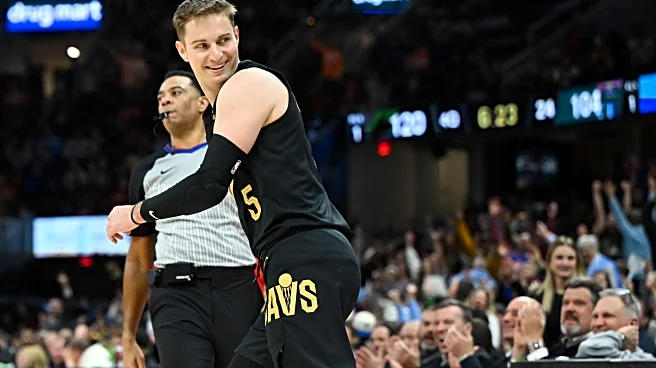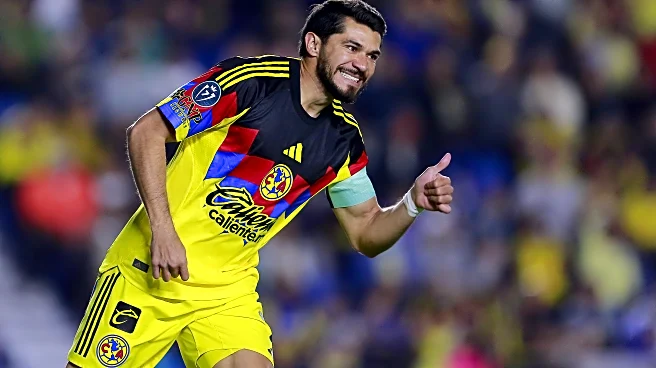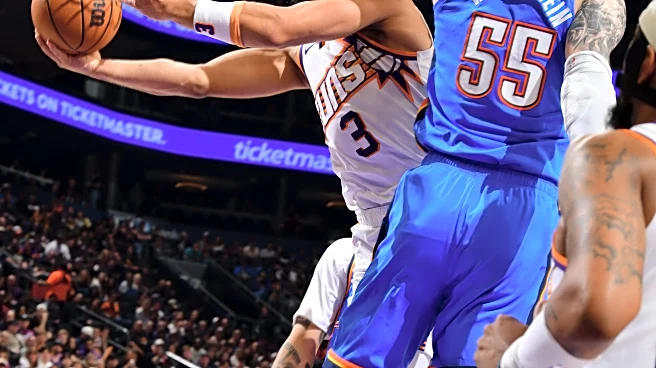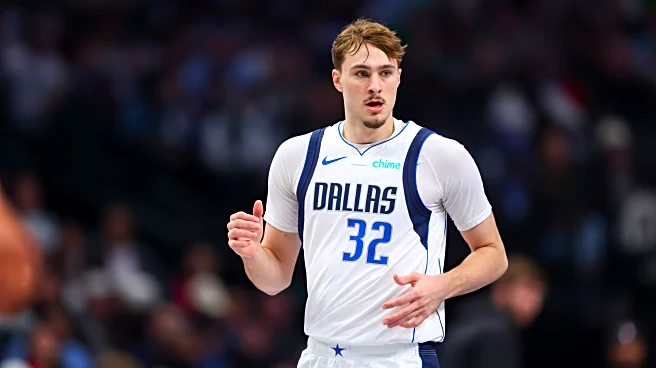What's Happening?
Luka Modric, the Croatian midfielder, has left Real Madrid to join AC Milan as a free agent. Despite his departure, Modric maintains strong ties with Real Madrid. According to Spanish media, Real Madrid president Florentino Pérez has expressed openness to welcoming Modric back to the club in a coaching role. Modric has communicated his desire to start a coaching career, and Pérez has assured him that the doors of Real Madrid will always be open for him to begin his journey at the youth academy. Modric's illustrious career at Real Madrid includes playing 842 matches, scoring 89 goals, and delivering 140 assists, contributing to 229 goals. He is regarded as one of the most iconic and decorated players in the club's history, with 28 trophies to his name.
Why It's Important?
The potential return of Luka Modric to Real Madrid in a coaching capacity could have significant implications for the club's future. Modric's experience and success as a player could translate into valuable insights and mentorship for young players at the academy. This move underscores Real Madrid's commitment to leveraging the expertise of former players to maintain its competitive edge. It also highlights the club's strategy of nurturing homegrown talent, which could strengthen its long-term prospects in domestic and international competitions. Modric's transition to coaching could inspire other players to consider similar career paths, enriching the sport with experienced professionals.
What's Next?
If Modric decides to pursue a coaching career at Real Madrid, he may follow in the footsteps of club legends like Raúl González, Guti, Zinedine Zidane, and current head coach Xabi Alonso. The club may formalize his role within the youth academy, providing him with opportunities to develop coaching skills and contribute to player development. Real Madrid's management might also explore ways to integrate Modric's expertise into broader team strategies. Fans and stakeholders will likely watch closely to see how Modric's coaching journey unfolds and its impact on the club's performance.
Beyond the Headlines
Modric's move to coaching could have broader implications for the sports industry, particularly in terms of career transitions for athletes. It raises questions about how clubs can support players in their post-retirement careers and the value of retaining experienced individuals within the organization. This development may also influence cultural perceptions of athlete career longevity and the importance of planning for life after active sports participation.











